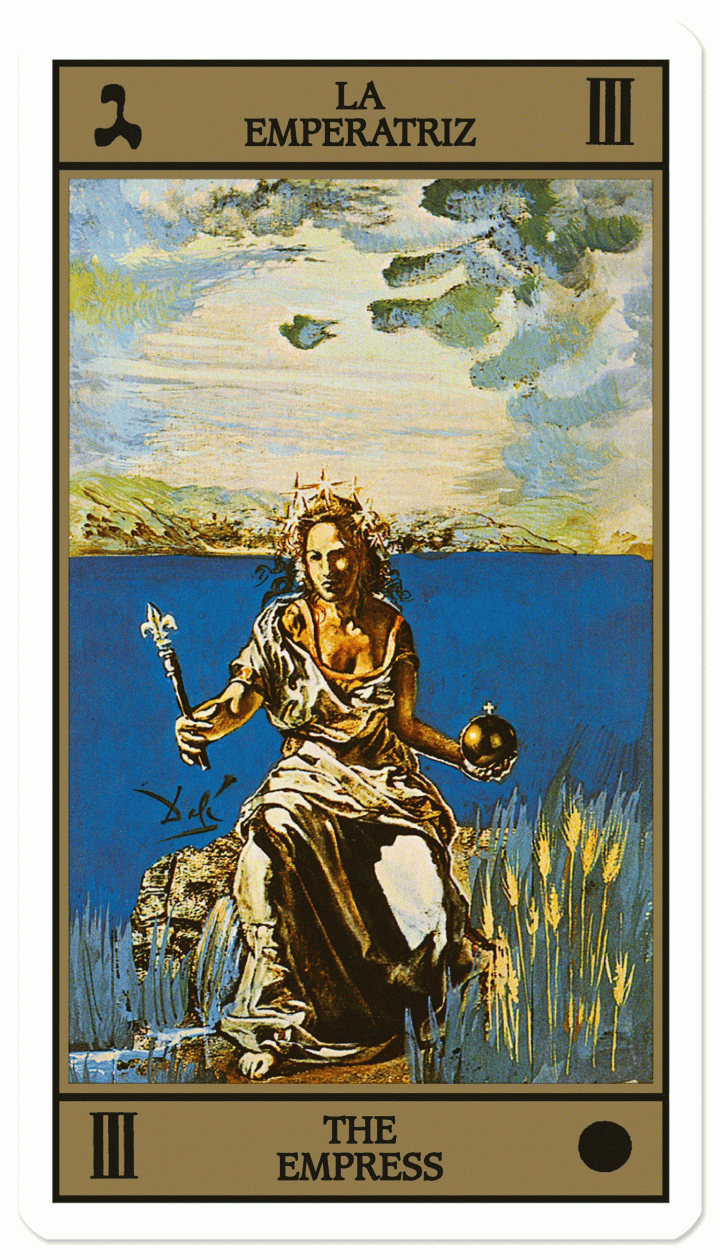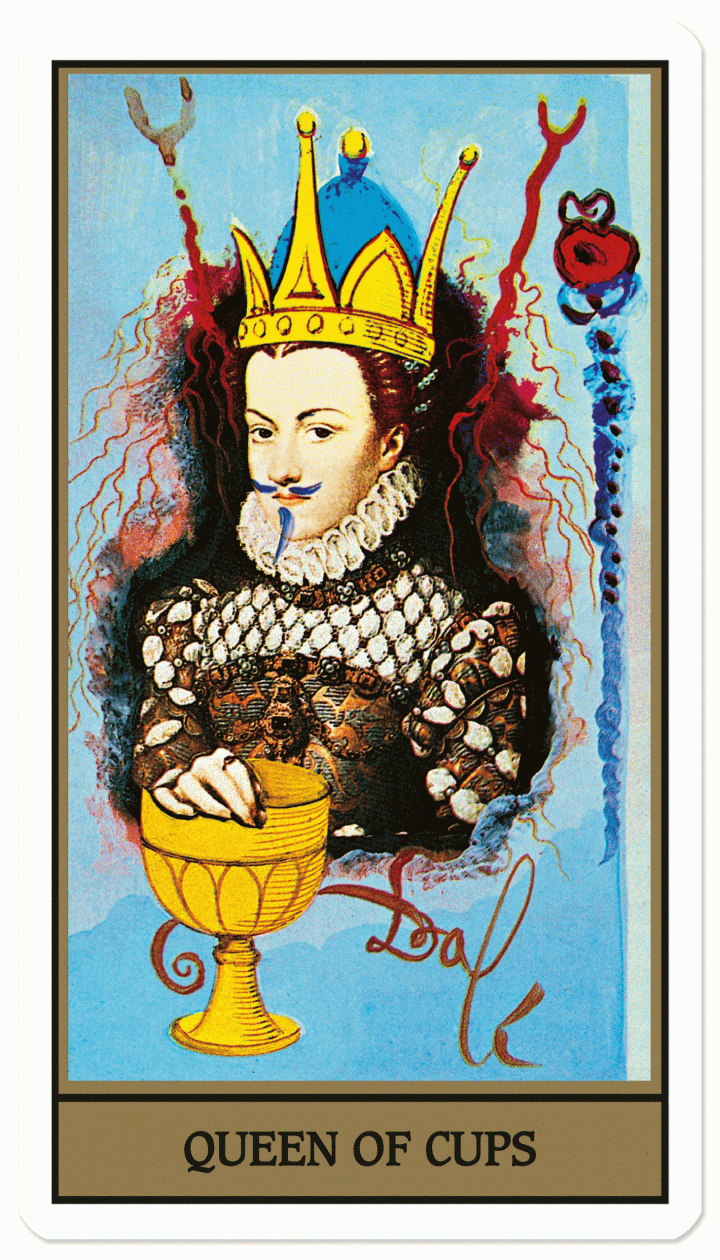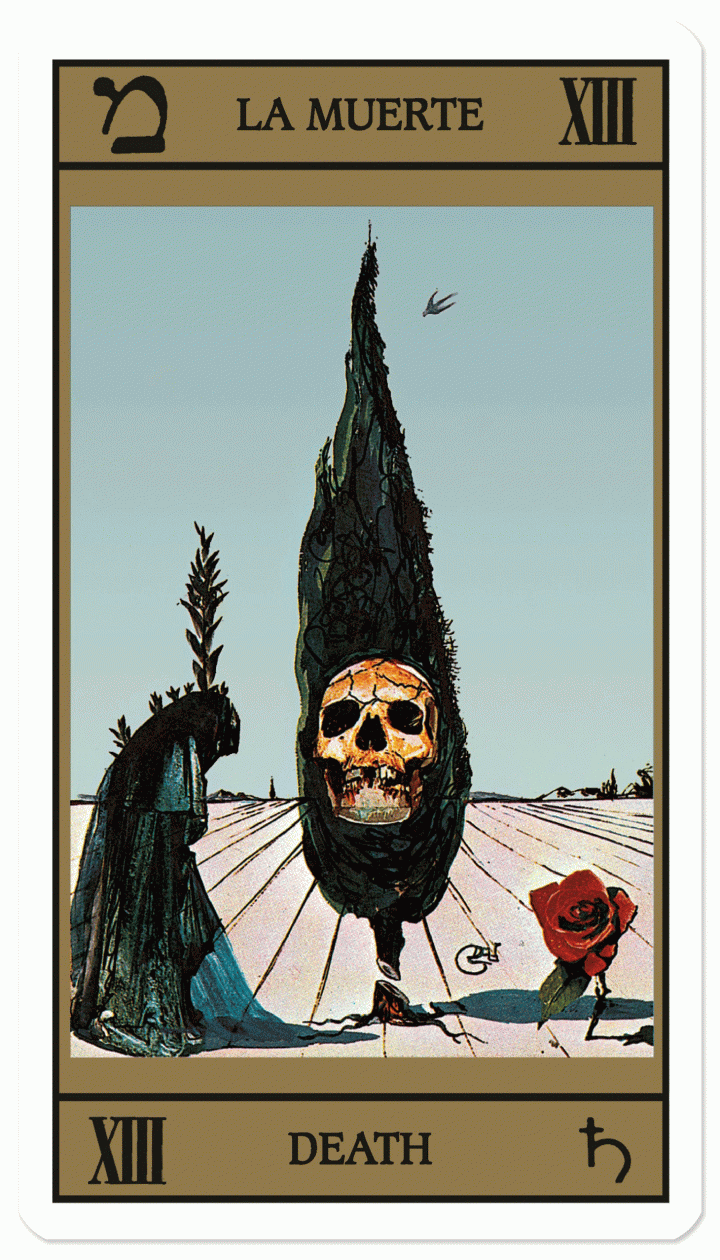
If you think you already know everything there is to know about Salvador Dalí, this lesser-known factoid might change your mind: In the early 1970s, the surrealist artist ventured into the occult with a custom deck of tarot cards featuring himself and his wife, Gala, as mystical figures. The deck was originally created for the 1973 James Bond film Live and Let Die, starring Roger Moore and Jane Seymour, but it never appeared in the picture.
In 1973, Albert R. Broccoli, a producer for the 18th James Bond spy thriller, approached Dalí with an offer to create the tarot deck for a scene in the film. The cards were needed as props for the character of Solitaire, played by Seymour, a psychic who works for a menacing drug lord. As Bond films typically go, the psychic changes sides to become the spy’s collaborator and love interest.
Dalí accepted the offer and started working on the cards, possibly encouraged by his mystically inclined wife Gala, but it was rumored that the contract fell through when the artist demanded an astronomical fee that was too high even for the film’s $7 million budget.

Dalí was eventually replaced by a much more affordable artist named Fergus Hall, whose Tarot of the Witches card made a short appearance in the film. Nevertheless, Dalí continued working on his deck, which he eventually offered for sale in 1984. The deck came with a companion book that included instructions on how to use the cards and a description of their making. Now, Dalí cards are available to all in Taschen Books‘s reproduced edition of the deck, released in October of this year. A deck will cost you $60.

The deck’s 78 cards combine classic tarot themes with Dalí’s signature motifs: dissected faces, ants, roses, and butterflies. The deck features the artist himself as the Magician, while his wife poses as the Empress. Dalí’s Ten of Swords card — which can represent betrayal, backstabbing, or the death of a relationship — is a depiction of the assassination of Julius Caesar. The Queen of Cups is a play on François Clouet’s portrait Elisabeth of Austria, Queen of France (circa 1571), whom Dalí dresses with a goatee and mustache. The Moon is a woman’s face looking down on at a modern metropolis and Death is an ominous skull in a floating, cut-off cypress tree.


As a poke at the producers of Live and Let Die, Dali gave the Emperor’s face to actor Sean Connery, who was the first to portray Ian Fleming’s literary spy character in a film. Connery and Moore were in public rivalry at the time, each criticizing the other’s performance of the secret service agent.
Taschen Books’s edition of the deck comes with an explanatory booklet authored by tarot expert Johannes Fiebig. It includes an introduction about Dalí and a guide explaining the meaning of each card and how to perform a reading.

No comments:
Post a Comment